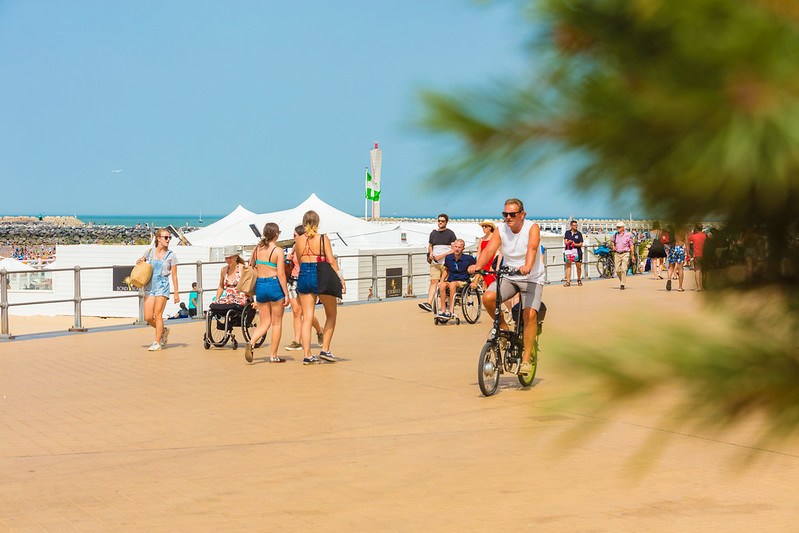The coastal municipalities of Blankenberge and Ostend will carry out strict identity checks this summer, to avoid the kind of trouble that marred the season last year.
The two towns are both end-stations for trains coming from the rest of the country, and as such are important points where tourists have to arrive before heading to other towns on the coast.
At the same time Knokke-Heist, the other main end-station, will receive assistance from Dutch mounted police to head off trouble, often caused by youths from the Netherlands just across the border. Such extreme measures are necessary simply because the home affairs ministry is not able to give the coastal towns the kind of police back-up they are used to.
Usually in the summer months, police from the interior of the country are posted to the coast to help provide a presence even where there is no trouble. But this year, only half the usual number will be available, forcing mayors to look for other solutions.
The idea is to use systematic identity checks and a new database to identify people who have already been involved in troubles, either at the coast or elsewhere. For instance, those responsible for fighting at the Blaarmeersen park in Ghent – thought to be youths from Brussels and northern France.
The new database was created in response to the incidents at Blaarmeersen, on the order of federal home affairs minister Annelies Verlinden (CD&V).
"This information was not shared before," said mayor of Blankenberge, Daphné Dumery (N-VA). "Now our police can see who is already known elsewhere, and that's a good thing."
Dumery has introduced a special police order to allow them to go further in checking IDs than the law normally allows.
Meanwhile in Ostend, mayor Bart Tommelein (Open VLD) told the Krant van West Vlaanderen, “I have a zero tolerance policy. These troublemakers are known, and not in a positive sense. You don't get a ban just like that. Whoever is on this list already has things to be ashamed of. We don't need it here.”
In Ostend, he said, any young people involved will be arrested and sent home.

